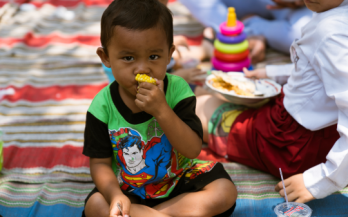

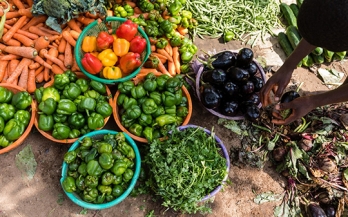
Communities of Practice for Food Systems Transformation and Governance
- 16/10/2024
This convening paper summarises the contents and outcomes of a meeting series jointly organised by the Deutsche Gesellschaft für Internationale Zusammenarbeit (GIZ) and the Global Alliance for Improved Nutrition (GAIN). The initiative aimed to foster exchange between policy advisors from both organisations who provide policy advice to governments on topics related to food systems transformation and governance.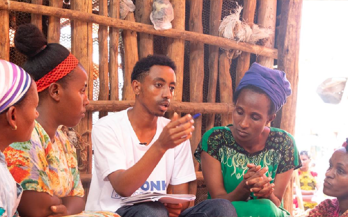
Rapid Market Assessment Tool for Food Safety In Traditional Markets
- 26/07/2024
The FTF EatSafe activity sought to improve food safety in traditional markets, adopting a systems approach and a focus on consumer demand. Traditional markets in LMICs are complex spaces at the core of food systems. Traditionally neglected, they are now recognized as key food environments where most people in LMICs procure their food, and where consumer demand meets supply chains.
Leveraging Consumer Demand to Drive Food Safety Improvements in Traditional Markets – An Activity Implementation Guide
- 24/07/2024
Feed the Future's Evidence and Action Towards Safe Nutritious Food (EatSafe) aimed to increase consumer demand for safe, nutritious foods in traditional food markets in Nigeria and Ethiopia. This document details recommended approaches for implementing activities aimed at enhancing food safety in traditional markets through demand-driven behavior change, drawing on insights and lessons learned from EatSafe’s activities in these countries.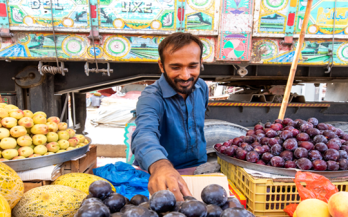
Leveraging Consumer Demand to Drive Food Safety Improvements in Traditional Markets: FTF EatSafe’s Research & Implementation Results.
- 26/07/2024
Improving food safety in low- and middle-income countries (LMICs), particularly in the traditional markets where most consumers shop, is crucial for advancing nutrition, health, and other development goals. Feed the Future’s (FTF) Evidence and Action Towards Safe, Nutritious Food (FTF EatSafe) activity aimed to stimulate and leverage consumer demand for safer food to drive improvements in food safety in traditional markets.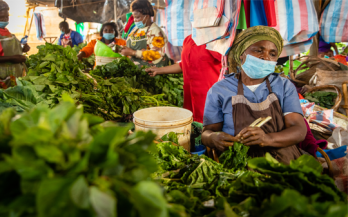
Food Safety Training Manual for Vendors in a Traditional Vegetable Market
- 26/07/2024
Feed the Future’s EatSafe: Evidence and Action Towards Safe, Nutritious Food (FTF EatSafe) aimed to boost consumer demand for safe, nutritious foods in traditional markets in low- and middle-income countries (LMICs), specifically Nigeria and Ethiopia. Utilizing a two-phased approach, FTF EatSafe's Phase I combined global evidence with local situational analyses to understand the context, and Phase II involved designing, testing, and implementing interventions to empower consumers. Insights from formative research guided the development of interventions, including the Vendor Training Initiative in Hawassa, Ethiopia. The Vendor Training Initiative, piloted in the Aroge Gebeya market in Hawassa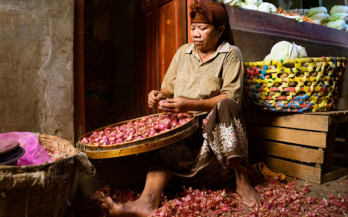
GAIN Working Paper n°43-Political Economy for Food System Pathways: A New Decision Toolkit
- 18/09/2024
Political economy dynamics—that is, conflicts and trade-offs across different interest groups that play an important role in the food system—permeate many decisions about food systems policy and implementation. Development practitioners working in the food systems space—inclusive of agriculture, nutrition, and environmental policies—need to be aware of these dynamics to be able to support policy advocacy, development, and implementation.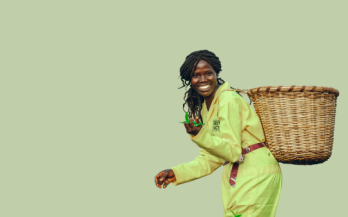
Infographic: Navigating Climate Change - Impacts on Health and Nutrition
- 10/09/2024
Environmental factors impact human health and nutrition through various pathways, and these impacts can be felt disproportionately by already vulnerable groups like women and children.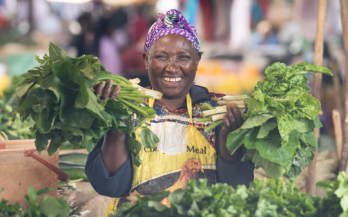
Reaching Lower-Income Consumers with Nutritious Foods: Distribution Hubs, Direct Sales, and Supporting Distributors and Retailers
Serving the needs of lower-income consumers requires getting food products to where they are—which often includes remote rural areas as well as underserved urban neighbourhoods. This makes distribution a key, but also costly, aspect of the business model. Using a ‘hub’ model, in which aspects of distribution are grouped together instead of done separately, can improve efficiency and cost-sharing, reducing costs overall.